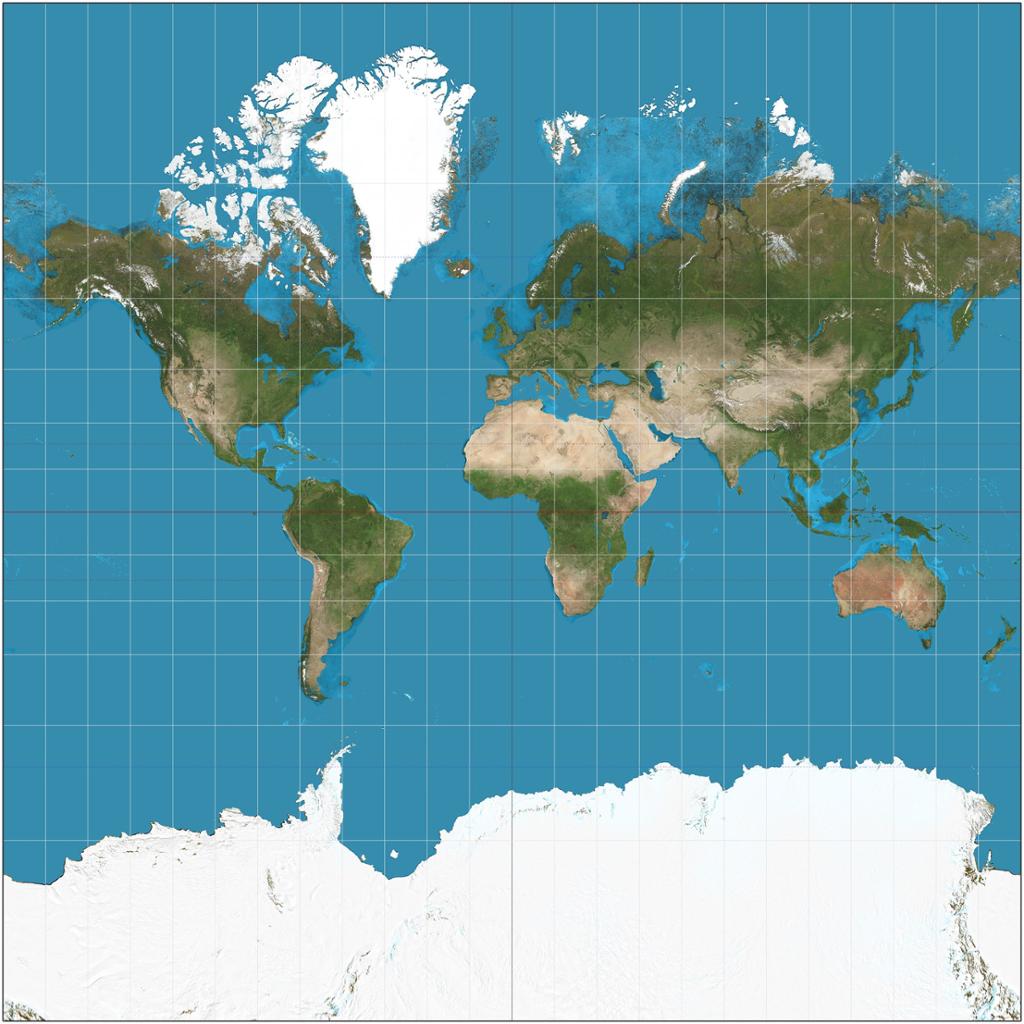Tasks: The British Empire
Is the British Empire the main reason why English is a global lingua franca today?
If today's space exploration lead to the discovery of a new world full of valuable resources inhabited by tribal peoples, would we behave differently than the British did when they colonised the United States, Australia or New Zealand? (I.e. displacing the Indigenous peoples and taking their land).
Several African countries have struggled to become stable democracies after gaining independence from the United Kingdom. Do you think this is related to how borders were drawn during the colonial period? Can you think of other reasons why there are conflicts in parts of Africa?
The Mercator Projection is a world map designed by the Flemish cartographer Gerardus Mercator in 1569. The map was useful for navigation because it represented north as up and south as down everywhere while preserving local directions and shapes. Study the map. Does anything strike you as strange? (Hint: Is the island Greenland bigger than the continent Africa?)

Work in groups.
The Mercator Projection map is one of the five advancements that made the European age of exploration possible. The other four were the astrolabe, the magnetic compass, the sextant, and the caravel ship.
Find out more about each of these five advancements, explain what they were, how they worked, and why they were important.
Share your findings with another group and compare your answers. Did you find the same things?
Work in groups.
Choose two former British colonies from different continents. Research the colonies and compare them to each other. Look for similarities and differences. Present your findings using a suitable presentation tool.
You can find out which countries have been colonies by making an online search, or by following this link to World Atlas's list of former British colonies: Link to former British colonies on the World Atlas website
When did the countries come under British rule?
How did the British rule the country? (See 'types of British rule' in the expandable box.)
How did British rule affect the people who already lived there?
How did the countries gain independence?
Does the country have English as an official language?
Did the colonial period influence what the countries are like today?
Choose one of the tasks and write a longer text.
How did the British see themselves and their Empire? What justifications did they make for taking over other people's land?
Make use of literary works and relevant sources to explain how the British viewed and justified their empire. You may for example use these two works that you will find here on NDLA:Rudyard Kipling 'The White Man's Burden'
George Orwell: 'Shooting an Elephant'
Compare how two former colonies gained independence.
Divide the class into groups, and have each group choose a different person from the list of people who are associated with the British Empire in one way or another. Research the person and prepare a podcast episode about them and their connection to the British Empire (the podcast should be minimum three minutes long, maximum ten minutes long).
Queen Elizabeth I
George Washington
Queen Victoria
Cecil Rhodes
Mahatma Gandhi
Kwame Nkrumah
In this interactive task you have to match a country's flag with a picture from that country's capital. It is not easy – can you do it? All the countries are former British colonies.
Further study:
Read a short novel (novella):
By following the link, you can read the novella Heart of Darkness by Joseph Conrad. This novella is a criticism of European colonial rule in Africa. It tells the story of Charles Marlow, a sailor who takes on an assignment from a Belgian trading company as a ferry-boat captain in the African interior.
The novella has three chapters, and is about 126 pages long.
Link to The Heart of Darkness by Joseph Conrad on Gutenberg Project's website
When you have read the novella, consider the following questions:
What did you learn about European colonial rule in Africa?
In what way is the novella a criticism of colonialism?
Relatert innhold
Read about the rise of the first British Empire during the reign of Elizabeth I.